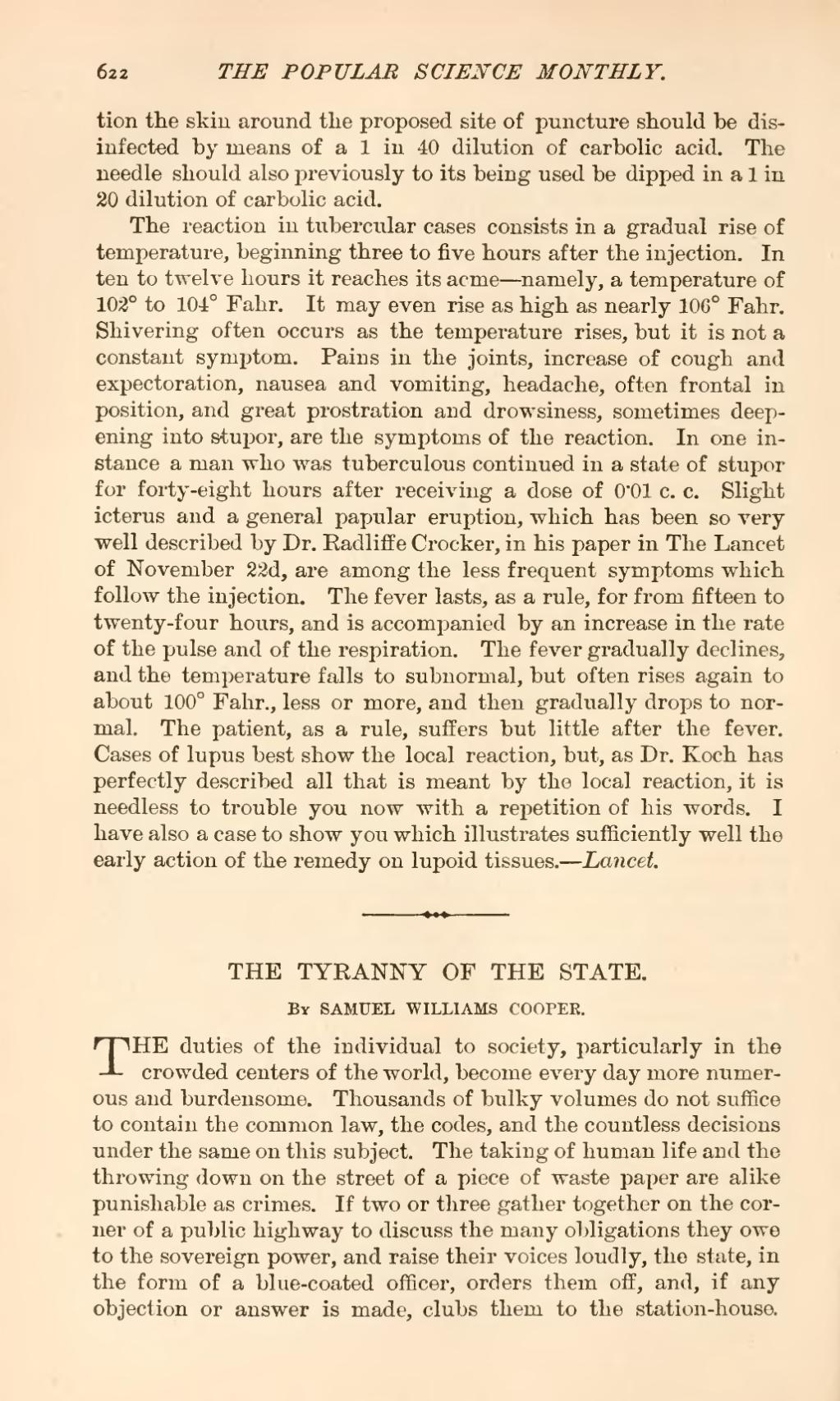tion the skirt around the proposed site of puncture should be disinfected by means of a 1 in 40 dilution of carbolic acid. The needle should also previously to its being used be dipped in a 1 in 20 dilution of carbolic acid.
The reaction in tubercular cases consists in a gradual rise of temperature, beginning three to five hours after the injection. In ten to twelve hours it reaches its acme—namely, a temperature of 102° to 104° Fahr. It may even rise as high as nearly 106° Fahr. Shivering often occurs as the temperature rises, but it is not a constant symptom. Pains in the joints, increase of cough and expectoration, nausea and vomiting, headache, often frontal in position, and great prostration and drowsiness, sometimes deepening into stupor, are the symptoms of the reaction. In one instance a man who was tuberculous continued in a state of stupor for forty-eight hours after receiving a dose of 0'01 c. c. Slight icterus and a general papular eruption, which has been so very well described by Dr. Radliffe Crocker, in his paper in The Lancet of November 22d, are among the less frequent symptoms which follow the injection. The fever lasts, as a rule, for from fifteen to twenty-four hours, and is accompanied by an increase in the rate of the pulse and of the respiration. The fever gradually declines, and the temperature falls to subnormal, but often rises again to about 100° Fahr., less or more, and then gradually drops to normal. The patient, as a rule, suffers but little after the fever. Cases of lupus best show the local reaction, but, as Dr. Koch has perfectly described all that is meant by the local reaction, it is needless to trouble you now with a repetition of his words. I have also a case to show you which illustrates sufficiently well the early action of the remedy on lupoid tissues.—Lancet.
| THE TYRANNY OF THE STATE. |
By SAMUEL WILLIAMS COOPER.
THE duties of the individual to society, particularly in the crowded centers of the world, become every day more numerous and burdensome. Thousands of bulky volumes do not suffice to contain the common law, the codes, and the countless decisions under the same on this subject. The taking of human life and the throwing down on the street of a piece of waste paper are alike punishable as crimes. If two or three gather together on the corner of a public highway to discuss the many obligations they owe to the sovereign power, and raise their voices loudly, the state, in the form of a blue-coated officer, orders them off, and, if any objection or answer is made, clubs them to the station-house.

